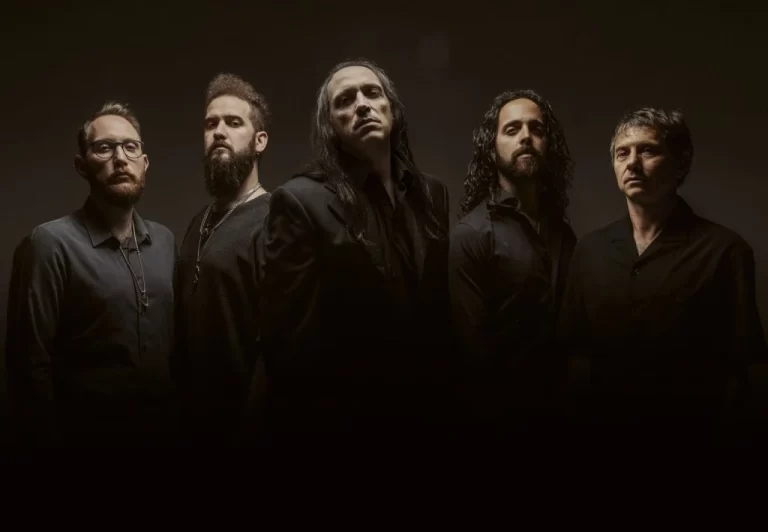It has been twenty-seven years since Lodestar last graced us with their presence. In the intervening years the world, and the industry, have both changed massively. And yet the band’s new album, Zonen, is informed by a remarkable chemistry – to the extent that you’d be hard pressed to know the band have been away.
The chemistry isn’t limited to the stage, either. For today’s interview, I’m joined by Heitham (vocals) and Haggis (guitars), who share an easy camaraderie that sees them struggling not to finish one another’s sentences. They’re both friendly and courteous, laughing often throughout the interview, but you can also sense the fierce passion they have for the band sparking away beneath the surface, Heitham in particular becoming increasingly animated when he gets started on a topic close to his heart. It makes for an engaging interview, providing some of the back story to Lodestar’s unexpected, but incredibly welcome return.
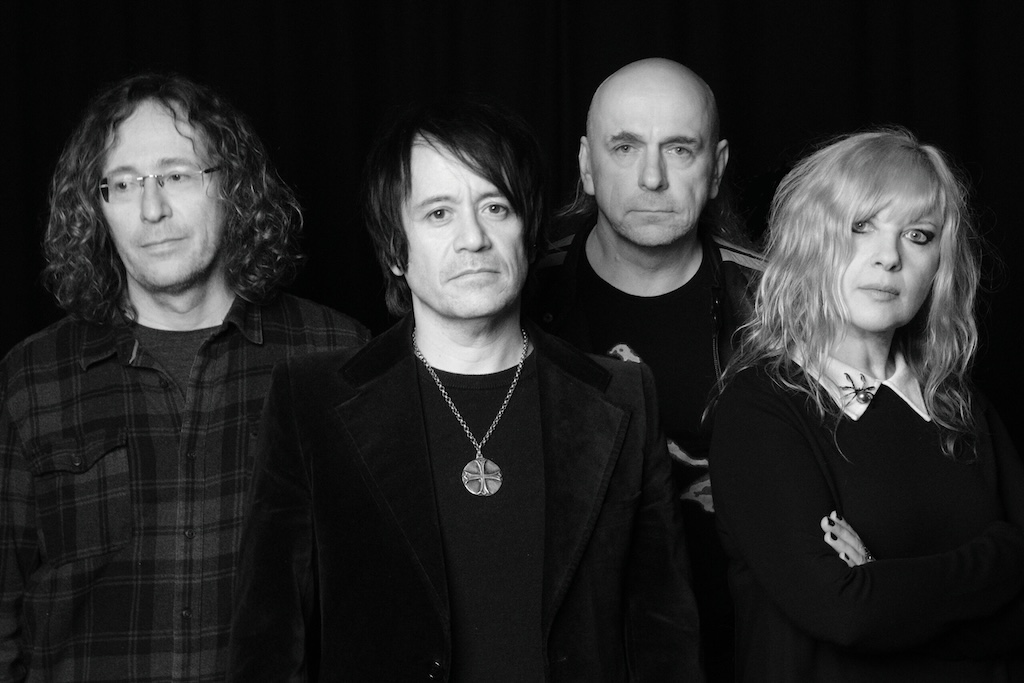
SonicAbuse: It’s really nice to have the chance to catch up with you, thank you for making time for me.
Haggis: No Worries
Heitham: Thanks for having us.
SonicAbuse: It’s a pleasure. It’s particularly a pleasure, because it’s been some 27-years, I think, since Lodestar first arrived on the scene. And then, as now, it feels very much like a passion project, where there’s an opportunity to explore influences on the heavier side of the musical spectrum, so I guess the first question is how long the desire to bring the band back has been bubbling under.
Haggis: I think it’s about five years. I first got a message from a friend of mine on the internet, who’s a big Lodestar fan, saying “why don’t you guys do some more music?”
And I thought, “why not?” So, I just looked the guys up to see if they were up for it. And the ball started rolling then.
Heitham: Yeah, and Haggis had a lot of different ideas – things already done. There was enough for us to just pick through, really, and see which ones were worth developing. So that’s what we did.
The word passion project, it’s not a million miles away from the word “hobby”. It’s not that! [Laughs] It’s not that. You know, it’s not a hobby thing. But it is a passionate form of expression for us.
Haggis: Yeah, I’d probably go for obsession over passion.
Heitham: Yeah! Obsession! Yeah. Obsession project.
SonicAbuse: [Backpedaling furiously] You’ll have to forgive the choice of words – I certainly didn’t mean it in the context of hobby, but rather the key word was passion, because listening to the album, you know, you can kind of tell when a band is really enjoying what they’re doing – it’s in the delivery and the feel of the music. So, yeah, I wasn’t thinking hobby, so much as it is a passionate endeavour – apologies if it came across that way.
Heitham: I’m just messing.
Haggis: It didn’t affect me at all, “passion project”
Heitham: [Laughs] I’m just paranoid, that’s all. It’s that simple.
SonicAbuse: I suppose it’s the inevitable consequence of when you’re dealing with multiple bands, people will, perhaps, put one next to the other and form comparisons – I was consciously trying to avoid that, but it backfired a little bit [laughs].
Heitham: Don’t worry, I’m only messing! [laughs] Don’t take it to heart.
SonicAbuse: [Extracting foot from mouth] So, in terms of developing the writing and the music, you said that Haggis had some of the material there, and I can see you’re in a home studio environment – so, was it a case of you working up demos and then passing them to the band to work up finished ideas?
Haggis: Yeah. This is where I live pretty much permanently. I’m always doing some music or other. I spend very little time watching TV or anything like that. I’ve been doing a lot of noisy electronic music today. And it’s constantly churning for me. And I had a stack of ideas that were based around a low-tuned guitar, and I thought well, start there, and see what happens. And I was really pleased that a lot of ideas took root straight away.
SonicAbuse: It’s a very dynamic album. You kind of kick off with Surrender, which is very Sabbathy in terms of vibe. And then you’ve got songs like Be Ready, which have these beautiful vocal harmonies that are almost folky – so, I guess, you’re all pulling from a variety of different influences to create your own sound.
Heitham: Yeah! To us, it feels like there’s kind of a thread, but it’s very, very yeah – we’d always listened to Sabbath and things. We used to cover Sabbath songs back in the day when we were touring the first record. We’ve always been into all of these types of music. So, we’re not just exploring one vein. We’re exploring all the things that we like, and it just arranges itself into a sound. It’s the sound of us.
SonicAbuse: That dynamic is what gives the music its power because heavy music can just bludgeon, but when you have the dynamic and the sequencing just right, you can take the listener on a journey.
Haggis: Yeah. As far as the song writing is concerned, it’s coming from a wider range. That big riff thing – the Sabbath thing is kind of the backbone of it. But there’s stuff in there from all over the place. I really like early music. I really like bebop. I really like electronica as well. So, that sort of subtly comes in. And Heitham listens to a ton of different weird stuff, so that all filters through and influences the melodies and harmines.
And Johnnie’s not a standard rock drummer. He’s quite a virtuoso really. He’s always up to tricks [laughs]. So, between the three of us, there’s always been something a little bit different that comers into the songs. A little tiny bit of fusion that you might not have heard, at some point… it always creeps in!
SonicAbuse: Once you’ve got the core songs laid out, how do you approach the sequencing for an album?
Haggis: I sequence the album. It’s my kind of thing. I do that. I put it up as a suggestion to start with, but people seem to go along with it.
Heitham: Also, you said you do it by just listening to it in your head, which I like.
Haggis: Well, that’s for set lists. I work as a live engineer, and I offer myself as a setlist writer for people who are completely clueless [laughs]. And I sit and look at songs and I imagine how they work going from one into another and I reckon I can sit down with ten songs and figure out the correct order, usually, for set list. So, it’s slightly different for an LP. But I apply the same logic.
SonicAbuse: That’s really interesting – particularly live sets. It’s always disappointing when a band plays and the set is disjointed, but if you can get it to flow and have songs segue from one to another, that’s always much more engaging.
Haggis: Yeah. I enjoy it. It’s a very meditative process. Moving things, and then I’ll know whether I’ve got it or not – whether I’ve solved the problems. Sometimes It’ll take hours to get the right order.
Heitham: It’s a bit of a ride – the dynamic you’re talking about – I like it when there’s a journey. You’ve sort of said it yourselves, really, that idea of there being just too much of one bandwidth, it’s just like turning on a tap. There has to be more movement and flow.
SonicAbuse: In terms of the lyrics, obviously with Senser it’s very direct, and you’re speaking to the audience. But and I know you’ve talked about this in other interviews, this type of music lends itself to lyrics that are more oblique and being open to interpretation. When you’re preparing lyrics for Lodestar – are you thinking more in terms of imagery?
Heitham: Well, my job’s a bit weird, you know, because there are a lot of really important things that can’t be expressed in words. You can’t actually… there are something that are perfect to express perfectly in words. But there are some ideas and some feelings that are not best expressed in words. But, if you’re a singer, you’ve got all these elements – the poetry element – singing lines themselves and how that interacts with the lyrics. So, it’s a very strange, multi-dimensional way of painting. You’re not just painting with words, you’re painting with the words, and the melodies, and the interaction with the music, and the volumes that you’re singing and the way that you’re making stuff happen.
Yeah, if you listen to old King Crimson, it’s almost impossible to know… to say what they’re singing about. But you just sort of instinctively know what they’re singing about. You just sense it.
Also, you can use symbolism, you can use words that are associated with other things. And you can play with certain sequences of words to help you imagine scenarios, so sometimes a record can be about more than one thing at the same time. Sometimes a record can be about two actual subjects, that are on top of one another. Or it can be very specific and storytelling. The amazing thing about it is that it’s open, it’s an open thing.
So, yes, to answer the question – ambiguity is important. I’m not being deliberately obtuse. I’m not trying to hide what I’m saying, but I’m not trying to give things over fully at the first read. I want the person to be able to participate somewhat and for it not to be completely passive.
And I just like the poetry of it.
SonicAbuse: What you’re saying there reminds me – I was at a musical lecture a few weeks ago, and the guy giving it talked about a culture who see rather than hear music – so, their songs are represented visually – it’s a sort of synaesthesia, and what you’re describing sounds similar to that… or, perhaps it’s just been a long day, and my mind is wondering!
Heitham: No, no, no – that’s essentially it. There’s lots of things happening at the same time. It’s not just the words. Lots of things are happening at the same time – timings, and clusters of words, and variations. And a lot of it you have to reach for instinctively, and sometimes you have an idea or a little cluster of words, and you try to place that over the music. And, then you’re going to derive more meaning from that – or not [laughs]. It doesn’t always have to have a deep meaning. It just happens to be there sometimes.
SonicAbuse: It does seem to be more of a prog or heavy music thing, but that kind of multi layered approach where you can completely enjoy it at the surface level, where there’s a cool riff, and you can bang your head and be on your way. But, at the same time, you can dig beneath the surface and read the lyrics (if they’re there) or try to make them out. And then, as you said, you can also bring your own interpretation, so it becomes a shared entity between the artist and the listener, which makes it more long-lasting, I guess.
Heitham: Yeah, it makes it easier to listen to again and again. And, for you to sort of invest something of yourself into it as a listener. I mean, most people who do the job of being a lead singer, usually they’re trying to process some terrible thing that’s happened to them in their lives – some misery. But it’s not, yeah – usually the good ones don’t put everything out straight. If you want people to listen to it again and again, you need people to not have that feeling of “yeah, I know this – I know what this is about.” They have to have that feeling of “yeah, I love this, and I think I know what he’s talking about!” [Laughs]
And, if people ask me specific things, I’ll tell them – I’m not hiding anything.
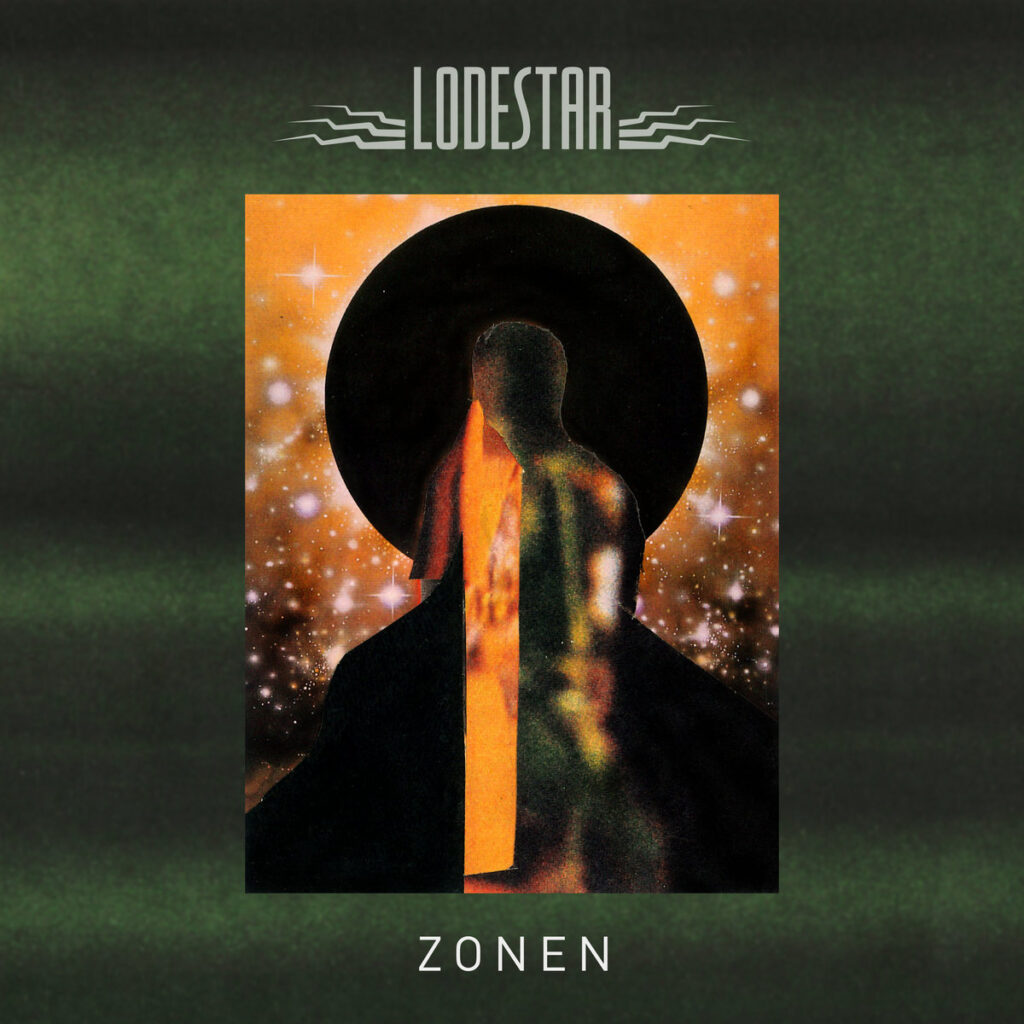
SonicAbuse: You also did the artwork for the cover, I think?
Heitham: Yes
SonicAbuse: So, was the art influenced by the relationship that you’ve just described with the lyrics, or was it created at another time, and you felt it fit the concepts of the album?
Heitham: It was created with the album and the music in mind. Yeah. And it does tie into the feeling of it. There’s a kind of magic element to it. A cultish element. Sensation. I’m not going to expound on these things too much. The simple idea of it is zones. Zones in which magic things are happening [At this point, Haggis holds up a Metal Zone pedal]
Haggis: He’s talking about Zones – this is the most important zone of all!
Heitham: [laughing] The zone we always go back to.
SonicAbuse: Going back to the music – the Sensational Alex Harvey Band was a nice surprise. I remember a colleague of mine at work once bought me one of their albums – he’d seen it in a charity shop and thought of me, so he turned up with this battered vinyl under his arm, and it was awesome. Was there a particular reason why that artist and that song?
Heitham: I just liked it and I said to Haggis, do you reckon we could do this? [Laughs]
Haggis: It was one of the first things we did. It was one of the first ones we got close to finishing.
Heitham: I thought Haggis would like it because of the Scottishness and the kind of creepy, semi-biblical, occultist element.
Haggis: Alex Harvey’s got something about him. There’s definitely something very, very odd going on with Alex Harvey.
Heitham: Are there some kind of preacher parents, or something?
Haggis: I’m not sure, I meant to look him up. But I noticed there were some people with Russian names, who are co-writers on that track. So, I don’t know what’s going on there – maybe some wild part in the Gorbals!
SonicAbuse: So, in 27 years, the industry has changed beyond, really, all recognition. When you came to resurrect Lodestar, were there discussions about how to do it, as I think it has become a lot harder… well, in one sense, you can reach more people, more quickly; but on the other hand, there are so many bands out there using the same channels, that it’s a lot harder to get engagement.
Haggis: It’s a different business completely form what it was in the 90s. A lot of the things that we assumed… you kind of get used to things being in place, like management, PR, pluggers…
Heitham: Record labels! [Laughs]
Haggis: Yeah, record labels, advances, publishing deals. All this kind of stuff. There was a way to do it and we all knew the way to do it in the 90s. Coming back now and finding that it’s all gone, it’s all been blown away, it was quite a surprise.
Heitham: Yeah, the bottom parts have been scooped out of it so, you’ve got… yeah, basically in the past, to summarise it: record companies, big or small, controlled the means of production – the recording part. Now, record companies mainly control distribution. So, in the past, we were very lucky. We worked very, very hard to create what we were doing and to create contacts with record labels, and we were very lucky as well. The labels that we did work with were very, very open minded – they just let us do what we wanted. They never meddled. I can’t remember one instance of meddling.
Haggis: Not at all. Not even slightly.
Heitham: Maybe they’d say, “this has to be the single”, I think. But only after we’d already agreed that that’s what it should be [laughs]. Yeah, nobody ever meddled. And so, some of the worst-case scenarios, where people got burned really heavily by record companies – it never really happened to us. So, yeah, there’s part of us that’s nostalgic for it, but it’s like coming… I don’t really know what the analogy would be. It’s a different landscape completely. It’s completely different and you either do it or you don’t. And you’ve got to do it!
Haggis: It really took me by surprise. I still believed that it all happened the same way as it did in the 90s and it’s only a few months ago that I realised that whole echelon has gone.
SonicAbuse: And, on the flip side, there’s something of an obsession with content. Where, in the 90s, you’d put out maybe a video and a single or two, and then there was the album; now, you’ve got the videos, the lyric videos, the visualisers (which are kind of a crap, Windows 98 screen saver kind of thing), downloads – so it’s become very content driven. Have you found there’s a pressure to produce in that way, or are your fanbase more skewed towards albums and physical media?
Heitham: We’re still very much trying to reconnect with our fan base. Most of them have no idea that we’re doing it. That’s why we’re doing as many interviews and making as much noise as we can. Because, in terms of people buying magazines, and you know – the way that it used to be newspapers, magazines, shows on TV about it – it’s all gone. So, we’re doing everything we can to reconnect with people. And, also, all the young people I know that have heard it, they’ve gone nuts for it. They just can’t quite believe that this is happening, so it’s a matter of figuring out how to capitalise on what’s good about the current distribution and publicity networks and systems, because we’re pretty new to it. Charlie’s the most in tune with all that stuff because she kind of teaches that sort of stuff at school. She teaches it to young musicians.
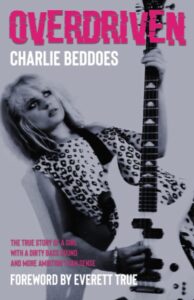
SonicAbuse: Charlie Beddoes joined into the process of writing the album – how did she get involved?
Haggis: Well, I played bass on the album, because I played bass in the original Lodestar. But I’d written the songs on the guitar already, so I was kind of both bass player and guitarist, which wasn’t going to work live. So, we needed to figure that out. And Heitham already knew Charlie, I think through both releasing books – was that how you know Charlie?
Heitham: Well, I knew her from back in the Rub Ultra days, and then in Bristol, her band Nasty Little Lonely supported Senser about ten years ago, maybe. And we were just chatting, and stuff and we stayed in touch. Then, that thing about us both having books – I ordered her book and it’s so powerful Anyone who had a band in 90s in London will just read this thing and it’s like looking in the mirror. It’s very funny and it’s a really interesting book. And, yeah, when we came to figure out how to play this stuff live, I thought it’d be really good to play with Charlie. I really, really like her sound. I really like the way she plays. She’s got this very steady, grinding – a lot of the bands I really like have that sound. I really like the Dave Simms bass sound in Jesus Lizard. There are a few people like that when they’ve got that slightly grindy… grooving and grinding [laughs]. So, yeah, I like that sound and I thought she’d be brilliant for it. Obviously, she’s not playing the same way that Haggis does, but the whole thing’s changed. It’s the same band, but it’s also a very new band. It’s like going to a city that you haven’t visited for twenty years. It’s the same place, but a lot of things have changed, right? Would you agree, Haggis?
Haggis: It’s a good way of putting it, I hadn’t thought of it in that way. It is like going back to North London, or something like that for me. It’s all changed.
SonicAbuse: That’s one of the cool things about seeing a band live. You have a record which can have layers and you can experiment and throw in little elements that people only notice on a recording. But then, live, it’s more visceral, and you can expand songs by jamming on them – and the album already has a very organic feel to it, so I guess there’s room to open things up and jam a bit more.
Haggis: Yeah, we’re hoping to get to that point. I’m still not used to playing guitar on stage. This is brand new, so I’m still tight and nervous about it. But hopefully, once we get a few gigs under our belt, there’ll be a bit more jamming. We’re just struggling through the changes at the moment – for me.
Heitham: Yeah, we haven’t got to the jamming on stage part yet. We’re still trying to be in the moment, really, and focus on what we’re supposed to be doing for now. But yeah, I’ll be excited to get to the point where we can.
Haggis: It’s to come.
SonicAbuse: Given the geographical separation, are you operating remotely until it’s time to tour?
Heitham: Yeah
Haggis: Yeah, although the internet isn’t quite fast enough to manage rehearsal just yet. So, we get together in Johnnie’s garage, knock it together.
Heitham: yeah, he’s got a studio that he’s built and its exactly the right size for us. I can’t imagine trying to get a band to play together online.
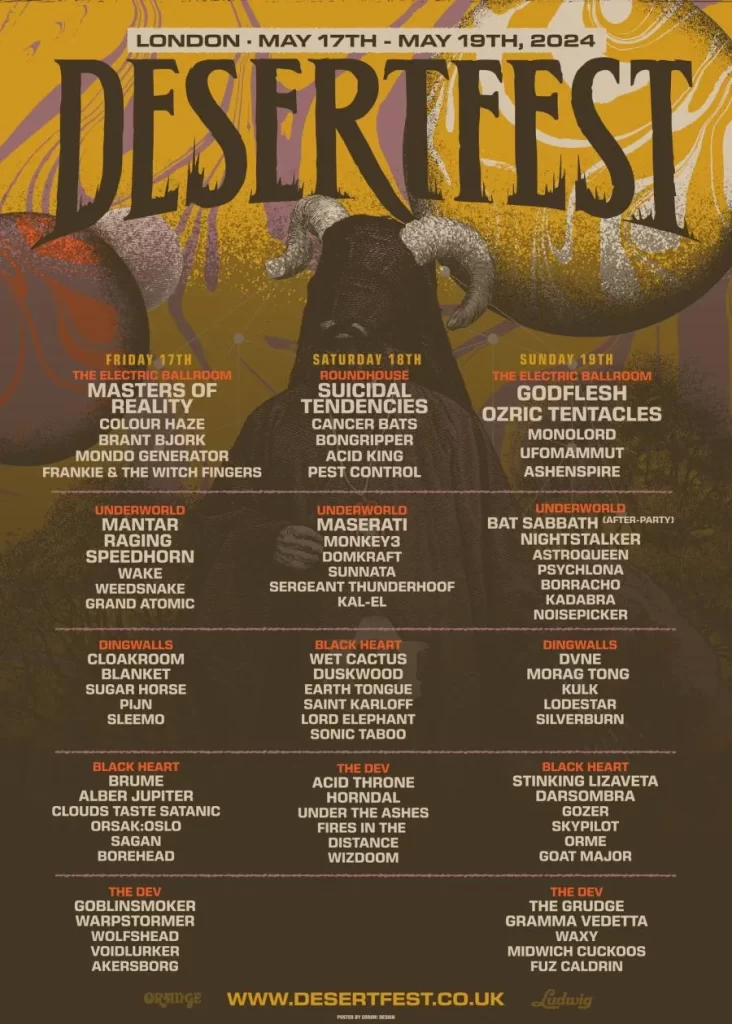
SonicAbuse: Last question, really, have you got live dates coming up?
Haggis: Well, we’re playing Southampton this weekend, on the 18th at Heartbreakers. And then we’re at Desertfest on Sunday 19th, playing at Dingwalls at 5:20, I think. I’m not sure when this is going out – it may be too late.
As fast as my little fingers can type [very fast, as it transpires]
Haggis: [Laughs] Fair enough!
SonicAbuse: And thank you very much for your time – it’s been great to have a chance to talk to you and it’s a fantastic record.
Heitham: Thanks a lot Phil
Haggis: Thanks a lot – I’m glad you’re enjoying it. I’ve got to say, this is the most polite abuse I’ve ever had!
SonicAbuse: The number of people who’ve been really disappointed by the name!
Heitham: At least go harder on the abuse! Some people enjoy it.
SonicAbuse: There was an American band who were disappointed to find we’re not a porn site. Maybe I should change the name, but Sonic Love doesn’t have quite the same ring to it.
Haggis: Sonic Etiquette.
Heitham: Sonic Friendship… not going to happen, is it?!
SonicAbuse: We are a depressingly positive site! Thank you, guys!


